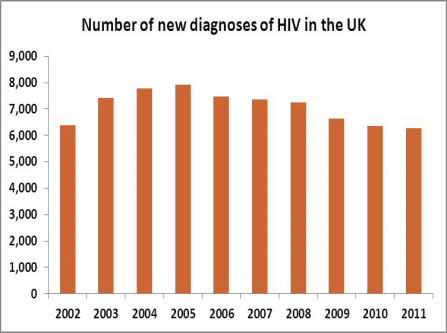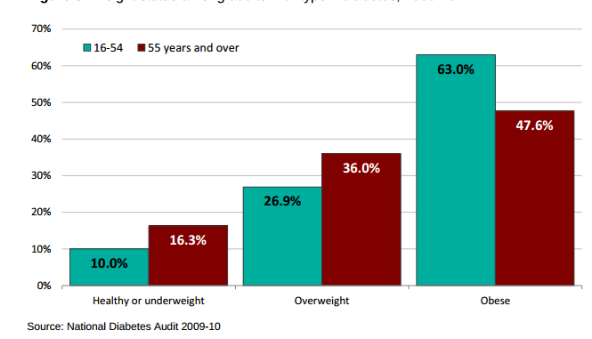INTRODUCTION
Public health is the important aspect through which government of nation can effectively cater need of different service users who are suffering from disease like Cancer and HIV/AIDS. For this purpose, roles and responsibilities are set for care homes in order to meet expectations of different stakeholders in an effectual manner. Present report is based on infectious and non-infectious disease such as 1.2. HIV/AIDS and breast cancer. In this regard, world trade organization, department of health and UNICEF has been explained. Furthermore, effectiveness of different approaches and strategies to control to the provision of services for people are also evaluated. In addition to this, impact of current lifestyles choices on future needs of health and social services are analyzed.
Assignment Prime is an online assignment writing service provider which caters the academic need of students.
Get Best Pricing Quotes Free Samples Email : help@assignmentprime.com Order NowTASK 1
1.1 Roles of World Health Organisation (WHO), Department of Health or Public Health England and Local Authorities (e.g. Clinical Commissioning Groups) in identifying levels of health and disease in communities
The agencies such as WHO and department of health are playing important role in role in terms of analyzing the level of diseases and health in the community. Here, WHO plays very crucial role by establishing various kinds of rules that is being followed by all nation. It investigate regarding diseases like breast cancer and other related aspect which is affecting general communication and then take necessary action accordingly. It shapes the research agenda and put efforts to disseminate valuable information in order to ensure smooth functioning of care homes. It is also responsible for monitoring health situation and effective assessment of health trends.
On the other hand, Public Health England another agency which generally proving national prevention with regard to diseases. Along with that, Public Health England also provides guidance for NHS and local authorities along with advice for management. Further, health emergencies are also tackled in the form of proper response. Therefore, it aids to protect front line health by proper alignment with partners and local government. Similarly, Clinical Commissioning groups consists of emergency care, elective hospital care as well as community health services. Moreover, local authorities identify and respond in accordance with the health care related need of general community. For example Bromley health care assesses the diseases that has impacted the health of many local individual. Accordingly appropriate actions are taken to control the impact of specific disease among society. For this purpose, local government also help in organizing training and development programs for the local doctors as well as GP.
1.2 Using statistical data, the epidemiology of HIV/AIDS and diabetes (Type 2)
The epidemiology of two different type of issues has been assessed evaluated by focusing upon facts and figures associated with the same. It is of HIV and diabetes (Type 2). Here, HIV (human immunodeficiency virus) lied under category of infectious diseases. It directly affects immune system of human by causing negative impact on white blood cells. However, white blood cells are considered as the important part of immune system(Cancer Research UK, 2016). Such kind of disease take place because of unprotected sex, use of single needle for two individual through which people get infected. According to a survey in 2012, it was found that 98400 citizens of United Kingdom are suffering from HIV. This ratio was increased in 2013 as 107800 people infected from this disease. However, 24% of of individual are not even aware of this diseases that how they get infected.

Furthermore, diabetes (Type 2) is the form of non infectious diseases under which high level of blood sugar is being occurred. However, blood sugar is regulated in the human boy through insulin only. It can be critically evaluated that type 2 diabetes directly affect that blood circulation by hampering working of insulin to a great extent. Owing to this, sugar isolation can be seen in the blood which in turn bring situation of high blood sugar. Here, the chances of getting affect from such kind disease occurred to those who perform less exercises and suffering from obesity also. Kidney damage, heart diseases and eye blindness etc. are some of the aspects associated with patients or individual suffering type 2 diabetes. The graph reflects that approximate 2.7 million people in UK are suffering from Type 2 diabetes. In addition to this, 750000 people consider that they have all symptoms of the same disease.

In addition to this, there are total 2814004 people in England with 6.2% prevalence of diabetes. On the other hand, northern Ireland have 5.3% prevalence with total patients of 81867 whereas wales has total 177212 people with 6.9% prevalence. Accordingly it reflects that large number of people are diagnosed with diabetes in 2014.
1.3 Evaluating the effectiveness of different approaches and strategies to control the incidence of any infectious and non-infectious disease
The modern scenario of UK reflects that impact of both infectious and non-infectious disease. For this purpose, it becomes crucial to control the incidence for taking into account well being of general community. For this purpose different approaches and strategies such as prevention, public health and sanitation as well as health education. Along with that , health promotion and specific protection are applied. Here, health promotion is effective approach through which health authorities can prevent illness and create appropriate atmosphere for general community. For example, World Health Organization is helpful for increasing control and improving health of personnel in an effectual manner. At this juncture, different parties like psychologists, educationists and professionals put efforts to their behavior of people for enhancing their health. They are also implementing different kind of practices for preventing illness among individual.
Similarly, various health campaign are introduced for meeting expectations of general community and they are asked to take healthy diet. Here, healthy diet is the effective remedy for plenty of individual to stay fit and free from diabetes. Furthermore, light exercise in educational curriculum can also be considered as the effective for reducing the increasing ratio of diabetic patients on yearly basis. At the same time, unhealthy smoking is stopped with proper message. On the other hand, risky sexual activities or practices can be stopped by floating important information among society (Frahm, 2009). It will be helpful for providing good or better environment for sufferer and other people living with them. On the other hand, primary prevention take place in the form of population strategy or high risk strategy. Here, high risk strategy is used by offering preventing care for individual who are at high risk of disease like HIV or diabetes (Type 2). Apart from this, control can be ensured with the help of ongoing operation for the purpose of reducing the effect of physical and psychological infections.
TASK 2
2.1 Using relevant research to determine current priorities and approaches to the provision of services for people with diabetes (Type 2) and HIV
There are various types of current priorities and approaches to the provision of services for people with diabetes (Type 2) and HIV. It assists health care sector to cater need of personnel effectively and meet their requirement by offering them good quality of treatment. For this purpose, it becomes crucial to measure the gap between current health status and an ideal health situation. However, health care organizations need to take into account the same factors that diabetes (Type 2) and HIV is increased among human being. Owing to this, risk factors are highlighted among general public with the help of education related to health. It will be helpful to promote dietary practices. Here, government of UK promote health campaign and support local health care organizations so they can offer quality services. Furthermore, government kept enough budget for all these activities which make it possible to cater need of HIV sufferer.
Government can provide education to local people by making provision in schools in relation to healthy diet, exercise and other related activities. At this juncture, health care organization can provide assistance to schools for incorporating specific chapters related to HIV and diabetes (Type 2) (Kovalainen and Högstedt, 2013). On the other hand, negative impact of having unhealthy diet and less exercise should also be addded in curriculum. It will be effective for students to get detail information related to health issue and accordingly they disseminate the same information to their peer. Furthermore, it will be more convenient for nation to reduce diabetic patients because coming generation will be the effective health practices.
Furthermore, palliative care and remedial care are effective approach for patients of HIV and Diabetes. Similarly, priority must be given for record keeping of patient on daily basis. It will be helpful for health care sector to work upon specific disease and accordingly provide good quality of services. of the health care firm should maintain the daily reports of its patients. Moreover, Burden of diseases concept is associated with aspects of morality and financial cost etc. are also required to be taken into account (Kovandzic, 2010).
2.2 Relationship between the prevalence of breast cancer or HIV/AIDS in relation to the requirements of health services to support individuals with the above diseases
The prevalence of breast is done with proper integration of sufferer of health care organizations. For this purpose it becomes necessary for health care business to provide effective services to patients suffering Breast cancer. It will be helpful for patients because they can get treatment on right time can control the enhancement of the same. Here, proper research or collection of primary data will be helpful to keep record related to total sufferer of breast cancer in particular time. Accordingly, effective practices like educating people about the diseases and healthcare campaign can take place. However, increased prevalence of beast cancer will require higher need of planning, facilities and expertise as well as partnership working including funding. For example, total cost of £243 million is required to incur in UK due to average estimated cost per case is £7247.
Owing to this, health care sector can focus on multidisciplinary team (MDT) which consists of clinical nurse specialist (Macmillan nurse), surgeon, oncologists and radiologists. These all parties can be allowed to take decision decision related to diagnosis and oncological treatment for patients suffering from breast cancer. Moreover, for dealing with the disease like Breast Cancer, health care personnel are provided time to time training which in turn service quality can be improved (Neill, 2010). In addition to this breast cancer clinical services like palliative care is applied by health care organization through which patients are supervised effective and appropriate prevention can be ensured. With the help of palliative care quality of patients' life is increased by taking into account with his/her family members also.
2.3 Analyzing the impact of current lifestyle choices (e.g. diet, exercise and substance use) on future needs for health and social care services
There are number of activities which plays vital role in reducing the impact of severe condition of patients on quality of his life. For this purpose, different types of practices such as such as exercise, diet etc. are followed by people of UK. It can be critically evaluated that due to busy schedule most of the people do not find enough time to follow health practices such as Yoga and exercise but many of them are addicted to bad habits like smoking and alcohol specially among young individual (Seager, 2012). On the other hand, substances use is another practices which affect future needs of health care services. It can be critically evaluated that unhealthy diet, smoking and excessive consumption of alcohol. It indicates that health care services will require to explore for meeting expectations of different service users.
Furthermore, unhealthy lifestyles which is being adopted by general community of UK tends to enhance the risk of various diseases among young individuals. For example, risk of obesity, high blood pressure and cancer is increased in nation which tend to affect health care services also. However,another lifestyle choices like poor dietary factors, lack of exercise and high level of stress are some of factors affecting future needs of health and social care. Owing to this, authorities like WHO promote healthy life among individual by increasing scope of health education. For example WHO stated that having healthy food, individual will be able to reduce non-communicable disease such heart disease, diabetes and stroke as well as cancer.
TASK 3
3.1 Assessing the health and well-being priorities for people living in a London borough
The health and well being priorities for people living in London borough with specific focus on Hackney has been considered. Here, priorities are given in form sector where the first one is to improve health of children and young people. For this purpose, focus will be laid on childhood obesity by working on children under 5 years and pregnant women. Under this, healthy lifestyle will be developed fro families by enhancing practitioners effectiveness. Furthermore, school nursing model will also be implemented for ensuring health and safety of kids.
The second priority is based upon controlling use of tobacco by introducing effective practices for quitting the same kind of practices. For this purpose, four factors are taken into consideration such as smoke free generation, smoke free spaces and communities without smoke.
The third priority is on promotion of mental health where specific focus will be laid on working adults who generally face depression and anxiety. In order to make it possible, integrated mental health network will be implemented by government under which intensive social care package will be allotted. At the same time, cost of hospitalization will be reduced to a great extent.
In addition to this, older population will be taking into account by offering services to those who are suffering with dementia. At this juncture, data system will be improved between providers through which they can easily get support from care homes. At the same time, investment in dementia advisor will be also be augmented. Apart from this, integrated approach of dementia program will be developed by taking into account into primary care, social care and
all ‘first contact’ professionals.
3.2 Evaluating the effectiveness of strategies, systems and policies in a health and social care setting
There are different strategies and policies identified that leads to the health and well being of the people. It consists different aspects such as provision of services, quality of provision and , complaint policies etc (Alakeson, 2013). Here, regulation on complaint policies is taken into considered that is based on complaint which came into existence in the year 2009. regulation on complaint policies launched by NHS which is known as National Health Services Complaint. It was introduced by improving quality of services within the health care firm in London Borough where individual has right to file complaint against any unethical work taking place in care home. It facilitates care commission to keep record related to issues related to staff members, care home or nursing staff associated in the process of delivering services related to breast cancer or any other disease (Annor and Allen, 2008).
For example, one service users made complaints because he was having issue from the hospital operating in the Camden. This is because of lack of specialized personnel for dealing with the mentally retarded individuals. It reflects that hospital is not delivering appropriate kind of services which satisfaction level of service users. Furthermore, it is the responsibility of all care home to follow the aspects mentioned in Care Standard Act. Thus, standard mentioned in the act proves to be effective for smooth operation of care home which also cater need of individual in an effectual manner (Birnbaum, 2012).
3.3 Discussing changes that could be made to improve the health and well-being of individuals in a health or social care setting
There are several kinds of changes can be brought by health care organization n order to ensure smooth operation. For this purpose, nursing staff must be provided time to time training which leads to affect their business activities in an effectual manner. For example, service users were having issue related to lack of skilled staff. At this juncture, health care sector can explore their scope by offering appropriate learning among individual. This aspect tend to motivate them for delivering good quality of services (Corbett, Travaglia and Braithwaite, 2011). Here, they can also be motivated for the purpose of meeting specific needs of patients who are suffering breast cancer and HIV. Furthermore, personnel can connected with community through which users can share their issues with them. It becomes feasible for them to cater need of patients effectively.
Apart from this, bringing the changes in lifestyles of London can be imporved by offering information related to healthy diet and exercise (Hegarty, 2012). For this purpose focus can be laid on stop consuming fast foods and for those who avoid physical exercise etc . It enables corporation to meet expectations of services with implementation of right kind of practices. However, health education can be kept at central focus through which users can be satisfied and their mental health can be improved with appropriate policies. Therefore, by making some changes such lifestyle such as follows diet plan, consuming less fat and full of nutritional food etc, the health issues among individual can be reduced to a great extent. It will helpful for resolving issues of people with breast cancer and hiv. Along with diabetic patients can also ensure their good health.
3.4 Evaluating an activity that has been implemented to encourage behavior change for maximizing health for individuals in a health or social care setting
The current scenario for this is taken for smoking cessation programme which has been implemented to encourage behavior change in Hackeny. For this purpose, it was consulted on park bye-laws to enhance the smoke free zone for providing more space for sports for kids. Similarly, scope for promoting smoke free cars and smoke free homes campaign was expanded. Furthermore, priority actions consists of smoke free future generation wherein school activities will be added lesson plans, operation smoke storm and cut films. It aids to provide knowledge among students or kids for avoiding smoking activities (Neill, 2010).
Furthermore, Youth hubs and Youth Council were taken into account for participation of young people which aid to support young generation to get rid of bad habits of smoking. Apart from this, healthy workforce policies were implemented by exploring suppliers through which they can easily change their behaviour. In addition to this, extensive support of nursing staff in relating to quit services through which behaviour can be changed. In this manner focus was laid on quit services that directly affect patient and force to adopt healthy lifestyle.
CONCLUSION
The aforementioned report concludes that health care practices must be promoted by government for reducing impact of severe kind of diseases. It assists patients to focus upon their diet and healthy life through which overall ratio of disease is decreased in nation. It can also be said that, different approaches and strategies can be implemented on the basis of set parameters through which objectives can be met effectively on right time. Apart from this, behavior changes is effective aspects thereby patents can ensure their good health.
REFERENCES
- Alakeson, A., 2013. The individual as service integrator: Experience from the personal health budget pilot in the English NHS. Journal of Integrated Care.
- Annor, S. and Allen, P., 2008. Why is it difficult to promote public mental health? A study of policy implementation at local level. Journal of Public Mental Health.
- Birnbaum, D., 2012. A different kind of public healthcare system. Clinical Governance: An International Journal.
- Bogg, D., 2011. Leadership for social care outcomes in mental health provision. International Journal of Leadership in Public Services.
- Corbett, A., Travaglia, J., and Braithwaite, J., 2011. The role of individual diligence in improving safety. Journal of Health Organization and Management.
- Frahm, K., 2009. Family Support and Mental Health Care Quality in Nursing Homes Serving Residents with a Mental Health History. ProQuest.
- Hegarty, K., 2012. Gender, alcohol and intimate partner violence: how to respond in primary care. Advances in Dual Diagnosis.
- Kovalainen, A., and Högstedt, O. J., 2013. Entrepreneurship within social and health care: A question of identity, gender and professionalism. International Journal of Gender and Entrepreneurship..
- Kovandzic, M., 2010. A beginner's reflection on public mental health partnerships after a few sips of feminism. Journal of Public Mental Health.
- Manthorpe, J. and et.al., 2009. Ageing cities: public health approaches to creating a mentally healthy London for older citizens. Journal of Public Mental Health.
- Neill, 2010. Cultural attendance and public mental health - from research to practice. Journal of Public Mental Health.
- Seager, M., 2012. Towards a public health psychology. Journal of Public Mental Health.
- Thew, M., and Mckenna, J., 2008. Lifestyle management in health and social care. Blackwell Publishing Ltd.
- Williamson, T., 2010. Is there such a thing as society. International Journal of Leadership in Public Services.















